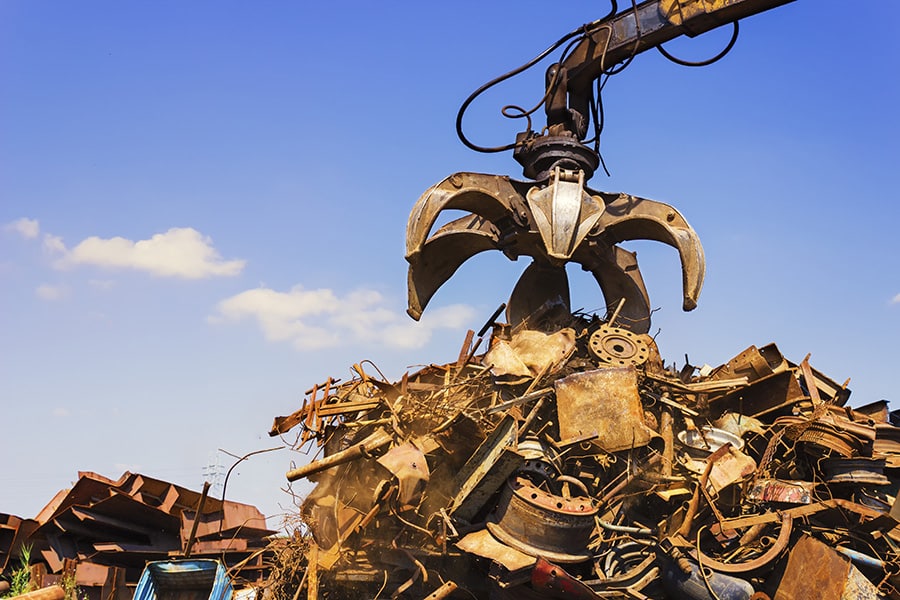What Are the Best Practices for Sorting and Storing Scrap Metals?
In the world of recycling and metal recovery, sorting and storing scrap metals efficiently is crucial for maximising value and ensuring safety. Whether you’re managing a small scrap yard or a larger operation, adhering to best practices in these areas can lead to improved operational efficiency, higher profit margins, and a cleaner, more organised workspace.
Here’s a comprehensive Scrap Metals in Melbourne guide to the best practices for sorting and storing scrap metals.
Understand the Different Types of Scrap Metals
Before you start sorting, it’s essential to understand the various types of scrap metals. Generally, they are categorised into:
- Ferrous Metals: These contain iron and include items like steel and cast iron. They are magnetic and typically less valuable compared to non-ferrous metals.
- Non-Ferrous Metals: These do not contain iron and include aluminium, copper, brass, and lead. They are generally more valuable due to their resistance to corrosion and desirable properties.
Develop a Sorting System
A well-organised sorting system is vital for efficient processing and recycling. Here are steps to develop an effective system:
- Designate Specific Areas: Create designated areas or bins for different types of metals. Clearly label each area to avoid confusion and mix-ups.
- Use Color-Coded Tags: Implement a colour-coding system to differentiate between types of metals easily. For example, use blue tags for aluminium and red tags for copper.
- Train Your Team: Ensure that all employees are trained in the sorting process, including the identification of metal types and proper handling procedures.

Implement Efficient Handling Procedures
Proper handling of steel recycling Melbourne scrap metals minimises contamination and ensures safety:
- Use Appropriate Equipment: Invest in sorting equipment such as magnetic separators for ferrous metals and air classifiers for non-ferrous metals. These tools can automate the sorting process and improve accuracy.
- Handle with Care: Metal scrap can have sharp edges and hazardous residues. Provide your team with appropriate personal protective equipment (PPE), such as gloves and safety glasses.
- Avoid Cross-Contamination: Keep different types of metals separated to avoid contamination. Mixing metals can reduce their value and make recycling more difficult.
Optimise Storage Solutions
Proper storage is essential to protect scrap metals from environmental factors and to maintain organisation:
- Use Weather-Proof Containers: Store scrap metals in containers that are weather-resistant to prevent rust and corrosion, particularly for non-ferrous metals.
- Elevate Storage: Store metals on pallets or elevated platforms to avoid direct contact with the ground. This prevents moisture accumulation and reduces the risk of rust.
- Implement Inventory Management: Keep track of your inventory with a detailed record-keeping system. This helps in managing stock levels and planning for future sales.
Ensure Environmental Compliance
Adhering to environmental scrap metals Melbourne regulations is crucial for legal compliance and sustainability:
- Understand Local Regulations: Familiarise yourself with local and national regulations regarding the storage and recycling of scrap metals. Compliance helps avoid fines and legal issues.
- Implement Proper Waste Disposal: Ensure that any waste or non-recyclable materials are disposed of properly. This includes following guidelines for hazardous materials and electronic waste.
Focus on Safety and Security
Maintaining a safe and secure environment is crucial in any scrap metal operation:
- Maintain Cleanliness: Regularly clean and maintain the sorting and storage areas to prevent accidents and maintain a safe working environment.
- Secure the Premises: Implement security measures to prevent theft and unauthorised access. This could include surveillance cameras, secure fencing, and regular patrols.
- Emergency Preparedness: Develop and communicate emergency procedures for accidents and fires. Ensure that your team is trained to respond effectively in case of emergencies.
Regularly Review and Improve Processes
Continuous improvement of is key to maintaining an efficient scrap metal operation:
- Conduct Regular Audits: Periodically review your Steel Recycling Melbourne sorting and storage processes to identify areas for improvement. This can help streamline operations and enhance profitability.
- Seek Feedback: Encourage feedback from employees regarding the sorting and storage procedures. They may provide valuable insights for improving efficiency and safety.
Final Thoughts
Sorting and storing scrap metals effectively requires a systematic approach, attention to detail, and adherence to best practices. By understanding different metal types, developing efficient sorting and handling procedures, optimising storage solutions, ensuring environmental compliance, focusing on safety, and regularly reviewing processes, you can enhance the efficiency of your scrap metal operations and maximise value.
Implementing these best scrap metals Melbourne practices will not only improve operational efficiency but also contribute to a cleaner and safer working environment.
Comments
Post a Comment